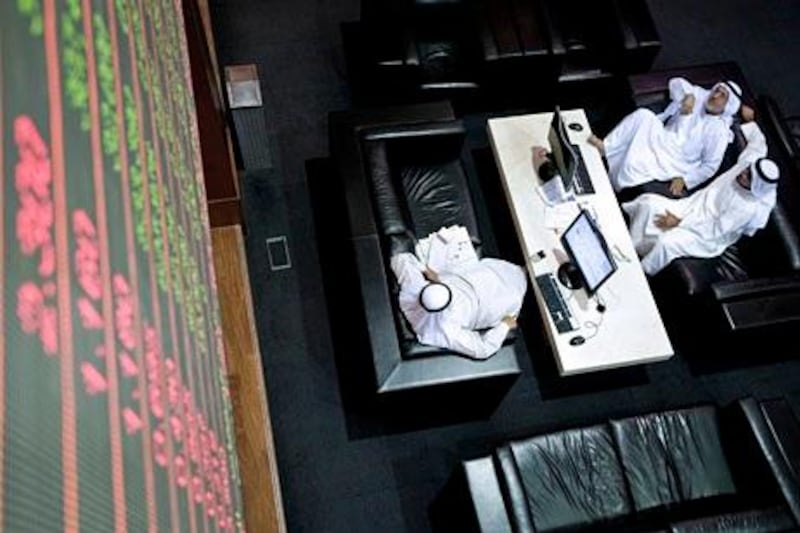Last September, when Al Habtoor Group announced that it was planning an initial public offering in 2013, I wrote that the move would be a "game changer" for financial markets in the UAE and could prove to be "Dubai's deal of the decade".
Last week, the IPO was postponed, so readers are entitled to some kind of explanation.
The Habtoor statement that called off the IPO was itself groundbreaking in many ways: for the first time, it revealed earnings figures, catalogued its assets in detail and gave an estimate of their worth.
At US$6.06 billion (Dh22.25bn) - excluding some valuable foreign physical and financial assets - the valuation was higher than previous estimates, and affirmed why Habtoor is such a keystone of the UAE's commercial edifice.
But the nearest the statement got to explaining why the IPO had been postponed was a reference to a "moral issue". This has mystified many in the Dubai financial community.
Public offerings can be called off for reasons of price, market sentiment, global economic outlook, or a host of other factors. I have never heard of a case where morality played a part.
In place of further elaboration from the company, there has been a flurry of speculation in and around the Dubai International Financial Centre. I have spoken to many of the parties involved in the aborted preparations for the IPO, and can report a genuine lack of comprehension.
In this knowledge vacuum, various theories have come to the fore.
The first is the easiest to understand: that, in uncertain global financial and economic conditions, Al Habtoor wisely decided it was the wrong time to go for a market listing. That is perfectly valid. A botched IPO would reflect badly on the company, and for UAE family groups, reputation is everything.
But it doesn't quite gel as a total explanation for the postponement. If anything, market conditions are better now than when Al Habtoor first announced its plans. Notwithstanding US "fiscal cliff" fears, the other big problem of the global economy, the euro zone, looks closer to resolution than at any time during the past three years, and regional markets indexes continue to outperform.
The second theory doing the rounds is that Al Habtoor could not be certain of getting the price it wanted in the IPO. Again, if that's true it's a completely understandable reason.
The assets were created and cultivated by the family over decades. Who is to tell them the price at which they should sell?
Here, we have to go back to the valuation. At first glance, the $6.06bn valuation looks ambitious for a collection of hotel, property and automotive assets mainly in Dubai, some under renovation or redevelopment.
But it must be stressed that the $6.06bn figure was not intended as a guide to market worth. It was the valuation reached by Al Habtoor's long-standing advisers, Grant Thornton, as an assessment of what the business was worth to the family on a discounted cash flow basis.
The value of the IPO could have been very different. An array of investment bankers were working on that precise figure when they heard the IPO was not to proceed.
The third "explanation" doing the rounds has to do with the structure of UAE markets. Put simply, Al Habtoor was spoilt for choice. The relative merits of Nasdaq Dubai and the Dubai Financial Market (DFM) made a final selection very difficult.
The former had been the family's preference back in September; but more recently it was being persuaded on the attractions of the DFM.
Efforts by the regulators and market authorities to reach some kind of compromise to allow Al Habtoor to enjoy the benefits of both markets were unsuccessful.
Again, this is not entirely persuasive on its own as a reason for calling off the IPO. Perhaps the three factors combined caused Al Habtoor's executive minds to think again.
Whichever turns out to be the main reason the "deal of the decade" was pulled, lessons will have to be learned. It has been four years since an IPO on the Dubai markets, not a good record for the aspiring financial hub of the region.
[ fkane@thenational.ae ]





